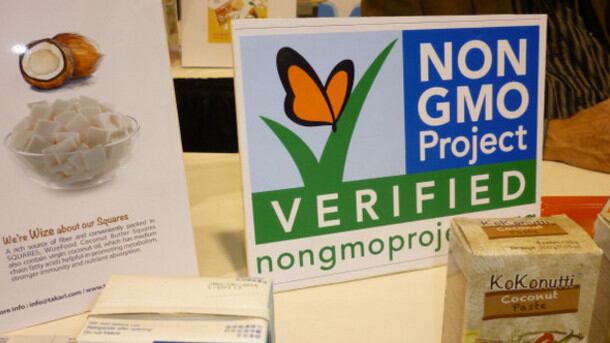In the latest version of its standards (click HERE), the Non-GMO Project says that “any product of synthetic biology” does not qualify as non-GMO.
Labeling minefield
Confusingly for people trying to navigate the GMO labeling minefield, Evolva’s vanillin is technically GMO-free as the ‘synbio’ yeast used to make it serves as a processing aid, and is not present in the final product. This means it would not require a GMO label in Europe, or in the US state of Vermont, which will introduce GMO labeling next year. However, it doesn't pass muster with the Non-GMO Project - which has stricter standards.
In the dairy sector, meanwhile, Chobani is telling shoppers that 'our ingredients are certified non-GMO' (by Eurofins) because they contain no GMOs, but acknowledges that its yogurt would not qualify for the Non-GMO Project Verified stamp because it cannot guarantee its milk comes from cows fed non-GMO feed.
So are these products non-GMO or not? And do consumers realize that they need to read the small print when they see a Non-GMO label claim?
FoE: Synbio is a ‘virtually unregulated and unlabeled form of genetic engineering’
According to the non-GMO Project, if synbio techniques were used at any stage in the production of a food, that product would not qualify for its stamp: “Cloned animals and their progeny are also considered GMOs under [our] standard, as are the products of synthetic biology. Any organism or input from an organism—whether used as inputs or as process elements in the creation of substances or materials—is a product of synthetic biology if it is associated with synthetically created nucleic acid sequences and/or genes.”
In a press release issued by Friends of the Earth (FoE), Non-GMO Project executive director Megan Westgate said: “Synthetic biology is an experimental form of artificial gene manipulation, and as such carries many of the same consumer concerns as genetic engineering… because of this, our standard treats synthetically modified organisms (SMOs) just as rigorously as GMOs."
Synthetic biology
‘Synthetic biology’ pioneers say they are blazing a trail when it comes to producing high value ingredients in more efficient - and more sustainable - ways by growing food not in fields but in fermentation tanks using everything from genetically engineered baker’s yeast to microalgae. But opponents claim that regulators have not caught up, that consumers will be duped if such ingredients are labeled as ‘natural’, and that we don’t know what the long term health effects might be.
FoE food and technology policy campaigner Dana Perls said this “proactive stance” would “raise awareness about this virtually unregulated and unlabeled form of genetic engineering.”
She added: “Synthetic biology - or synbio - is a new set of ‘extreme’ genetic engineering techniques that include using synthetic DNA to re-engineer organisms such as yeast and algae to produce substances they would not normally produce.”
She then went on to cite “growing concerns about the possible impacts of synthetic biology organisms on human health and the environment”, although she did not present any data to explain why they might present such a risk.

Evolva: Is the Non-GMO Project standard based on food science or food politics?
But Stephan Herrera, VP of Strategy & Public Affairs at Evolva, said he was not surprised by the Non-GMO Project’s decision or comments.
He told FoodNavigator-USA: “Well, I guess this decision removes any remaining doubts about whether their certification is based on food politics or food science.
"And conveniently enough for those of us who already had our suspicions about this group’s agenda, they actually rationalized their new rules around yeast in a press release put out by the same anti-biotech pressure group that is behind the Häagen-Dazs hoax."
Evolva: The vanillin molecule we are making is chemically identical to vanillin already on the market, so why would it present a unique health risk?
In an interview with FoodNavigator-USA last year, Evolva CEO Neil Goldsmith said that from a safety perspective, Evolva's ingredients such as vanillin (now commercially available from its partner IFF) were FEMA GRAS (determined to be generally recognized as safe by the Flavor and Extract Manufacturers Association expert panel).
But even if this doesn’t reassure FoE, he observed, there is no logical reason why Evolva’s vanillin should be any less safe than vanillin from a vanilla pod, petrochemicals, paper waste, clove oil, or fermented ferulic acid from rice bran.
“The vanillin molecule we are making is the same. It's chemically identical. The only way you can tell the difference is if you were to do carbon isotope testing.”
By understanding how plants turn sugar into desirable compounds, which is “via a cascade of enzymes that are themselves made by a cascade of genes”, he said, Evolva can work out how to biosynthesize these compounds via a fermentation process in which it inserts genes into the native DNA of baker’s yeast.
He adds: “We synthesize genes as part of that process, but we’re not ‘printing fake DNA’. All genes are just sequences of data and these sequences change all the time in nature anyway.”
